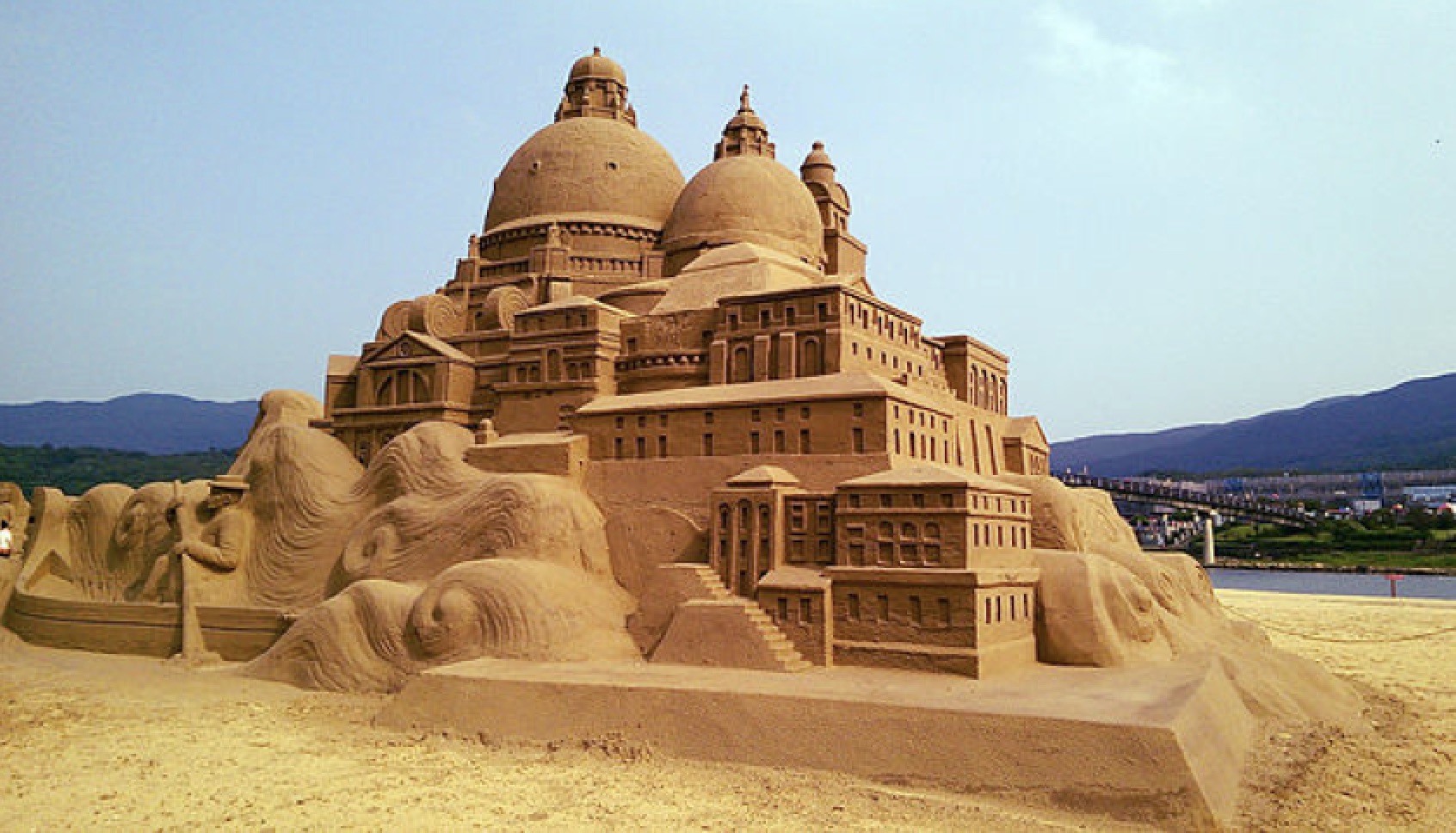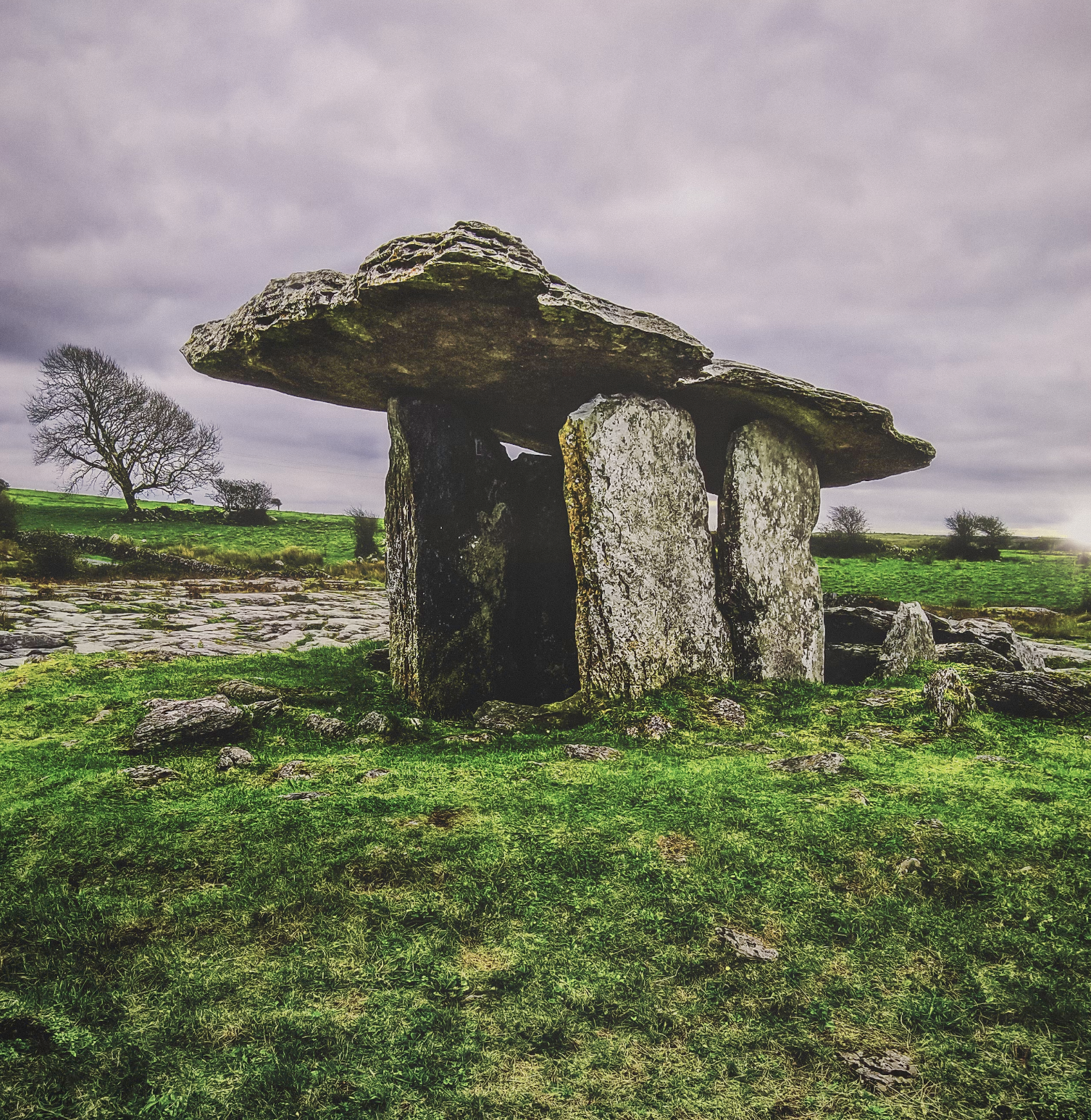Webca
Institute of World Culture
Program for 2024
Theme for the Year:
CREATING A CULTURE OF CONSCIENCE
Forum
Creating a Culture of Conscience:
Directives on Global Ethics

A Forum in Three Parts on three different Saturdays; JANUARY 13th, JANUARY 27th AND MARCH 23rd, 2024
Presenters: Carolyn Dorrance, Maurice Bisheff, Allan Cooley, Danson Kiplagat, Marcia Warrecker, James Tepfer, Nancy Martin, and Hugh Kelly
In-person at Concord Hall, Institute of World Culture, 1407 Chapala St., Santa Barbara, CA
Live Webcast begins at 2:00 pm, https://www.youtube.com/user/iwcinsantabarbara/live
Forum, Part 1: Solidarity and a Just Economic Order
Saturday, January 13, 2024
Introduction to the Aims and Value of Global Ethics – Carolyn Dorrance
Directive 2: Commitment to a Culture of
Solidarity and a Just Economic Order – Maurice Bisheff and Allan Cooley
The Institute of World Culture is renewing its commitment to promoting the welfare of humanity and of all that lives while preserving the rich but depleted resources in Nature. Throughout the world, mankind and all life forms are suffering from horrific events, natural and man-made. Thoughtful, transformative and ethical responses are necessary. The aims given in the IWCDeclaration of Interdependence will guide our search for alternatives to global turmoil. In its Forums and Study Circles, fearless inquiry and constructive dialogue will seek to awaken conscience in the investigation of the imaginative use of the spiritual, mental and material resources of the globe. Thereby, men and women of universal culture become capable of continuous growth in nonviolence of mind, generosity of heart and harmony of soul. The therapeutics of self-transformation in a culture of conscience can reveal the conditions, prospects and possibilities of the world civilization of the future and foster human fellowship among all races, nations and cultures. To provide an ethical and practical foundation for creating a Culture of Conscience, the study of a document, called "Towards a Global Ethic," may be helpful. This document was first presented at first Parliament of World's Religions in 1893. It was updated in 2015 and approved at the 2020 Conference of the Parliament. In it there is a remarkable, insightful analysis of our contemporary social circumstances and plans for active improvement of human interactions and living conditions. A fundamental demand that every human being must be treated humanely is made. Moral principles of a Global Ethics are discussed.
After the analysis, there are five Directives chosen by Parliament leaders to be the focus for study this year. Today we will focus on introducing the topic and on the second Directive. We will take up the remaining four Directives in the two additional forums listed below. The core ideas in each of the rest of the Directives will be presented by volunteers, followed by discussion. In this way, we will be joining a global conversation that includes our comments on how a Culture of Consciences might be created. To provide an ethical and practical foundation for creating a Culture of Conscience, the study of the document, called "Towards a Global Ethic," may be helpful: https://parliamentofreligions.org/wp-content/uploads/2023/05/Global-Ethic-PDF-2020-Update.pdf
This document was first presented at the initial Parliament of World's Religions in 1893. It was updated in 2015 and approved at the 2020 Conference of the Parliament. In it there is a remarkable, insightful analysis of our contemporary social circumstances and plans for active improvement of human interactions and living conditions. A fundamental demand that every human being must be treated humanely is made. Moral principles of a Global Ethics are discussed.
Forum, Part 2: Non-Violence, Tolerance and Respect for Life
Saturday, January 27, 2024
Directive 1: Commitment to a Culture of Non-Violence and Respect for Life – Marcia Warrecker, Danson Kiplagat
Directive 3: Commitment to a Culture of Tolerance and a Life of Truthfulness – James Tepfer
Commitment to a Culture of Non Violence and Respect for Life has to do with the need to treat fellow beings with respect and dignity. This means working to solve conflicts with nonviolent methods and solutions. We need to create a culture of non-violence and live in harmony with other humans and nature. "Commitment to a Culture of Tolernce and a Life of Truthfulness" involves the obligation to be ethical and truthful in our duties, whether it be as a journalist, a researcher, a religious participant or other role. We must learn to discern the difference between opinion and truth, and be sincere in our interactions with others. We need to be tolerant of differences rather than perpetuate partialities that become distorted.
Forum, Part 3: Care for the Earth and Equal Rights
Saturday, March 23, 2024
Directive 4: Commitment to a Culture of Equal Rights and Partnership between Men and Women – Nancy Martin
Directive 5: Commitment to a Culture of Sustainability and Care for the Earth – Hugh Kelly
For women to have equal rights with men, Nancy Martin suggests that we need to make the Commitment from the Parliament of the World's Religions come true. It states that we commit ourselves to a culture of non-violence, respect, justice, and peace. This means that women need to be safe in their homes, work, and out in the community. If women are safe in the world, chances are that men will be safe, too. Men need to have the same amount of respect for women as they do for other men. Justice needs to be accessible to all people regardless of standing, religion, race, ethnicity, or class in the community. We need a culture of peace, with a Department of Peace instead of a Department of Defense. If we want women to have equality with men, we need to see women with power in their home, that state, the country, and the governments of the world. We need to learn to trust women and respect for their decisions.
When we talk about sustainability, we're essentially talking abou the future of life on Earth. We're talking about healthy ecosystems. Now that humanity has made the whole planet its ecosystem, we need to develop conscious awareness that when we act, we are inevitably interacting with the complex systems of which we are an integral part, and on which we are totally dependent. Hugh Kelly will will focus on the ecosystem impacts of our food systems, on how the choice between destructive agriculture and regenerative agriculture impacts those ecosystems, and in turn, how the sustainability of all life is impacted by these choices.
For a more detailed explanation of these two aims: https://parliamentofreligions.org/wp-content/uploads/2023/05/Global-Ethic-PDF-2020-Update.pdf
Webcast Link:https://www.youtube.com/user/iwcinsantabarbara/live
Image: Wikipedia, Public Domain
Click here for a printer-friendly flyer
Forum
Castles in the Sand: The Common Sense of Constructive Change
Saturday, February 10, 2024
2:00 – 4:00 pm (PT)
In-person in Concord Hall, Institute of World Culture, 1407 Chapala St., Santa Barbara, CA
Live Webcast begins at 2:00 pm, https://www.youtube.com/user/iwcinsantabarbara/live
Presenter: David Boals
Trust is one of the most basic of human emotions and is fundamental to cooperating with others to achieve common goals. The prospect of change for any kind of group often causespeople to feel uncertain, fearful, and distrusting in anticipating possible outcomes, particularly if the outcomes seem to be out of their control. The purpose of this session is
to provide some basic information and promote discussion about the basic principles for changing groups that are organized to work for a common purpose. In line with the IWC’s mission, we can move to having a productive discussion about how to employ similar principles for undertaking change in any social system, and at any scale.
Webcast Link:https://www.youtube.com/user/iwcinsantabarbara/live
Image: Creative Commons Attribution-Share Alike 3.0, Fcuk1203; https://creativecommons.org/licenses/by-sa/3.0/deed.en
Click here for a printer-friendly flyer
Forum
A.I. – Daedalus and Icarus
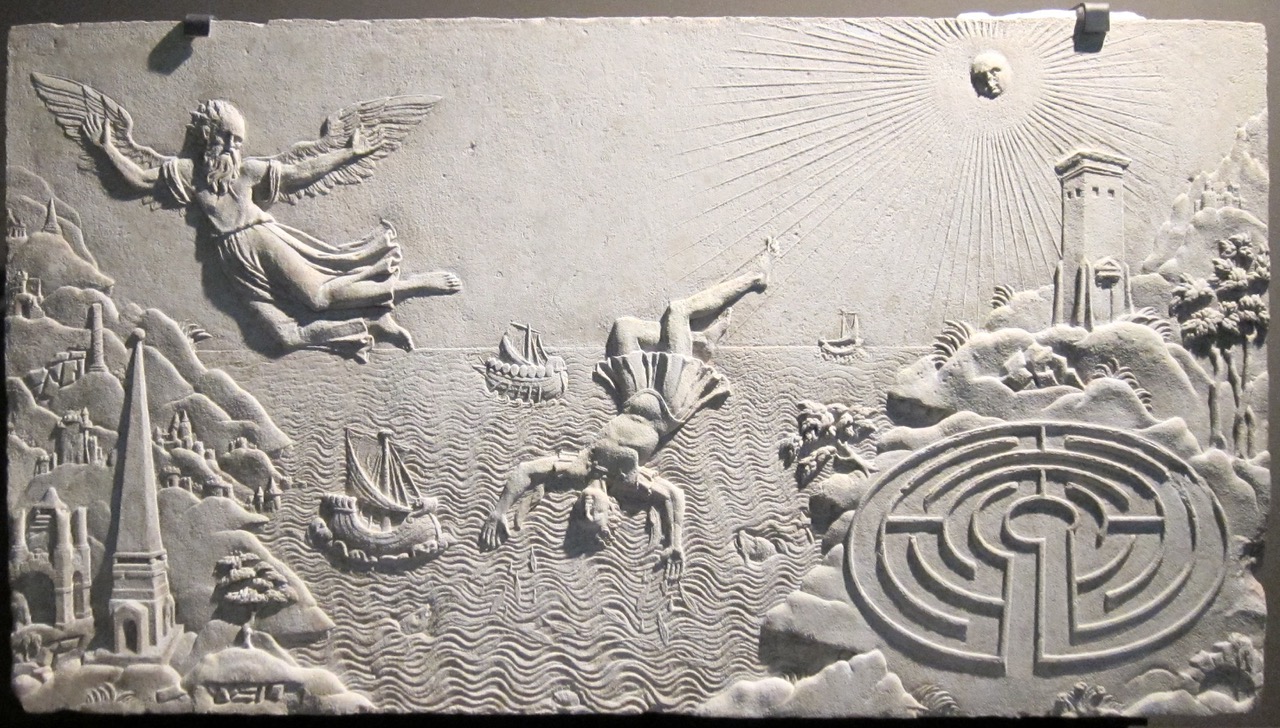
Saturday, February 24, 2024
2:00 – 4:00 pm (PT)
In-person in Concord Hall, Institute of World Culture, 1407 Chapala St., Santa Barbara, CA
Live Webcast begins at 2:00 pm at: https://www.youtube.com/user/iwcinsantabarbara/live
Presenters: Russ Lewin and Aidan Colbert
The powerful potentials of Artificial Intelligence (A.I.) might be compared to the ancient Greek myth of Daedalus and Icarus. In order to escape the labyrinth of Crete, Daedalus constructed wings made of threads and feathers molded into beeswax. Daedalus warns Icarus of the dangers of flying too low, or too high, and risking the wings being clogged by the sea’s dampness, or the sun’s heat melting the wax.
We need to gain a deeper understanding of these new technological ‘wings’ that have the potential to lift humanity to new heights if used wisely. We will discuss how A.I. works. This will include the possible benefits and dangers. There will also be a live demonstration of how individuals can use this powerful tool today. Discussion will follow the presentations.
Webcast: * You may attend this event in-person, or watch a simultaneous webcast by logging on to the Institute’s YouTube Channel: https://www.youtube.com/user/iwcinsantabarbara/live
Image: Wikipedia, Public domain
Click here for a printer-friendly flyer
Forum
King Lear and the Heart of Politics
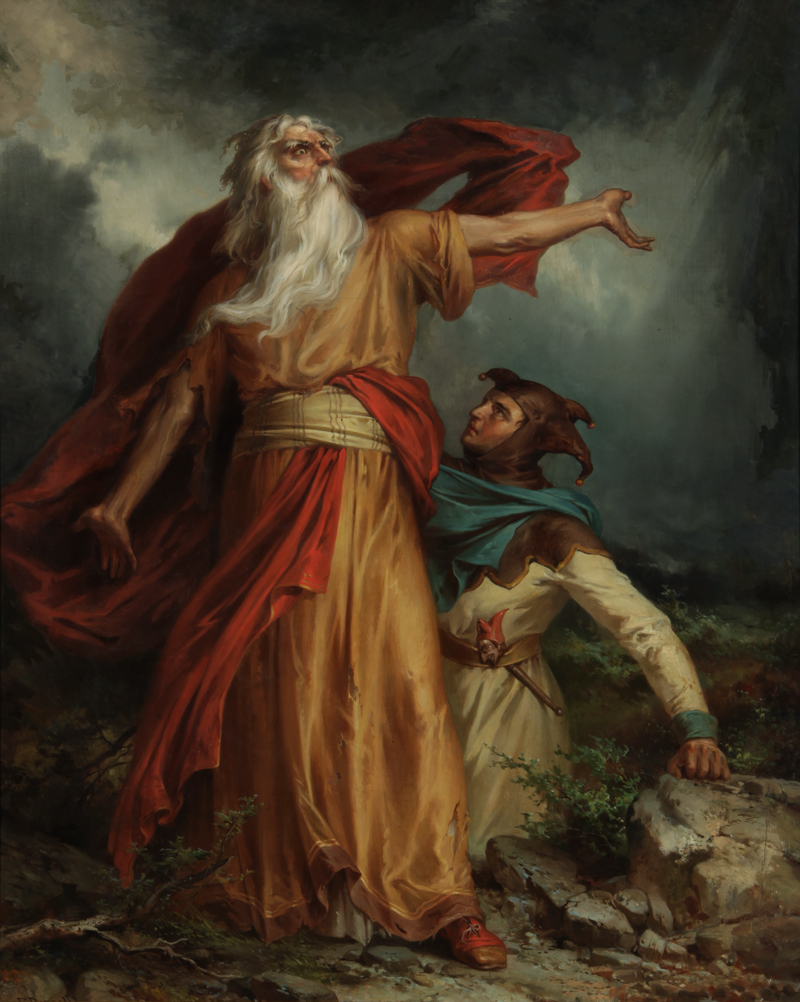
Saturday, March 9, 2024
2:00 – 4:30 pm (PT)
In-person only
Concord House Seminar Room, Institute of World Culture, 1407 Chapala St., Santa Barbara, CA
Presenter: Marlin Roehl
Often one reads that Shakespeare did more than write for his time; rather, he sowed seeds germane to socio-political and individual visions, values, and characteristics of our time. We cannot overlook that a study of Shakespeare’s plays reveals that he was a student of the historical Axial Age; the name given by Karl Jaspers to the pivotal period of 900 to 200 BCE. Consequently, Shakespeare serves as pillar to an arch bridging ancient to modern times. Karen Armstrong tells us in her book, The Great Transformation: The Beginning of our Religious Traditions, that the Axial Age, “was a time when Confucianism and Daoism in China; Hinduism and Buddhism in India; monotheism in Israel; and philosophical rationalism in Greece came into being. During this intense period of creativity [which Armstrong extends to include the later inception of Christianity and Islam], spiritual and philosophical geniuses pioneered an entirely new kind of human experience.”
Regarding dramatic arts, Armstrong notes that the once-private Dionysian rites were, in the Axial Age, performed en mesoi, in public. [Dramatic arts] “displayed the new self-consciousness of the Axial Age as the audience watched the mind of the protagonist turning in upon itself, meditating upon alternatives, and coming, tortuously, to a conclusion. And like philosophers, the tragedians questioned everything: the nature of the gods, the value of Greek civilization, and the meaning of life.”
In the same spirit, Shakespeare boldly presented his poignant plays to Royalty, to nobles, and to commoners—all within a shared globe of time, place, and experience. His attention to parapolitical moral and ethical causality called for heroic truthfulness, pathos, and at times heart-rending, at other times humorous compassion. His artistic techniques and astute insight into character evoke individual and societal transformation by means of self-conscious exploration, philosophical dialectic, and empathy.
Our January keynote speakers set the tone for this year’s IWC studies by referencing the “Initial Declaration of the Parliament of the World’s Religions” which states, “By a global ethic we do not mean a global ideology or a single unified religion beyond all existing religions, and certainly not the domination of one religion over all others. By a global ethic we mean a fundamental consensus on binding values, irrevocable standards, and personal attitudes.” Shakespeare’s King Lear is such a study.
The Parliament warned: “Without such a fundamental consensus on an ethic, sooner or later every community will be threatened by chaos or dictatorship, and individuals will despair”—it seems such are our times. Our exploration of Shakespeare’s King Lear is intended to be a study of humanist, parapolitical reality with an effort to form a more perfect global union. As the World Religions Parliament suggests — “We consider humankind our family. We must strive to be kind and generous. We must not live for ourselves alone, but should also serve others, never forgetting the children, the aged, the poor, the suffering, the disabled, the refugees, and the lonely.”
Discussion and light refreshments will follow the talk.
Image: Wikipedia, Public domain
Click here for a printer-friendly flyer
Forum
Care for the Earth and Equal Rights

Forum, Part 3: Care for the Earth and Equal Rights
Saturday, March 23, 2024
Directive 4: Commitment to a Culture of Equal Rights and Partnership between Men and Women – Nancy Martin
Directive 5: Commitment to a Culture of Sustainability and Care for the Earth – Hugh Kelly
To provide an ethical and practical foundation for creating a ‘Culture of Conscience’, the study of a document, called Towards a Global Ethic, may be helpful. This document was first presented at the initial Parliament of World's Religions in 1893. In it there is a remarkable, insightful analysis of our contemporary social circumstances and plans for active improvement of human interactions and living conditions. Moral principles of a Global Ethic are discussed. The document contains five Directives, three of which are the focus of two previous Forums at the Institute, both in January 2024. These two are available for viewing on the IWC YouTube Channel (see link below). The last two Directives will be the focus of today’s forum.
For women to have equal rights with men, Nancy Martin suggests that we need to make the Commitment from The Parliment of the World's Religions come true. It states that we commit ourselves to a culture of non-violence, respect, justice and peace. This means that women need to be safe in their homes, work and out in the community. If women are safe in the world, chances are that men will also be safe. Men need to have the same amount of respect for women as they do for other men. Justice needs to be accessible to all people regardless of standing, religion, race, ethnicity or class in the community and the governments of the world. We need to learn to trust women and respect their decisions.
When we talk about sustainability, we're essentially talking abou the future of life on Earth. We're talking about healthy ecosystems. Now that humanity has made the whole planet its ecosystem, we need to develop conscious awareness that when we act, we are inevitably interacting with the complex systems of which we are an integral part, and on which we are totally dependent. Hugh Kelly will will focus on the ecosystem impacts of our food systems, on how the choice between destructive agriculture and regenerative agriculture impacts those ecosystems, and in turn, how the sustainability of all life is impacted by these choices.
For a more detailed explanation of these two aims: https://parliamentofreligions.org/wp-content/uploads/2023/05/Global-Ethic-PDF-2020-Update.pdf
Webcast Link: https://www.youtube.com/user/iwcinsantabarbara/live
Image: Wikipedia, Public Domain
Printer-friendly flyer
Forum
Ireland: Where Stones Speak
Saturday, April 13, 2024
2:00 – 5:00 pm (PT)
In-person only at Concord Hall,
Institute of World Culture, 1407 Chapala St., Santa Barbara, CA
Presenter: Colette Kavanagh, Ph.D.
The Burren, in the west of Ireland, is a landscape like no other and is one of the most bio-diverse ecosystems on the planet. At first glance, these 140 square miles of flat limestone look barren and unforgiving; however, this stone is a mass grave of billions of ancient sea creatures that are more than 360 million years old. Between the cracks plants grow that survived the ice age, and beneath the surface are vast, unexplored caves. It also has the greatest concentration of megalithic tombs in Europe.
NEW EVIDENCE: Ireland's Burren is changing the ecological, archeological and genetic history of northern Europe, and evidence now shows, among other things, that there was human habitation in Ireland and in The Burren some 30,000 years ago.
Collete, a former documentary maker with RTE (Irish television) will show a beautifully photographed video which reveals the ecological, archeological and genetic discoveries being made in this vast landscape, and highlights its remarkable capacity for adaptation in nature and its enduring human spirit.
Image: Poulnabrone Dolmen, K. Mitch Hodge, from Upsplash
Click here for a printer-friendly flyer
Forum
From Fear Into Love: A Young Man's Odyssey
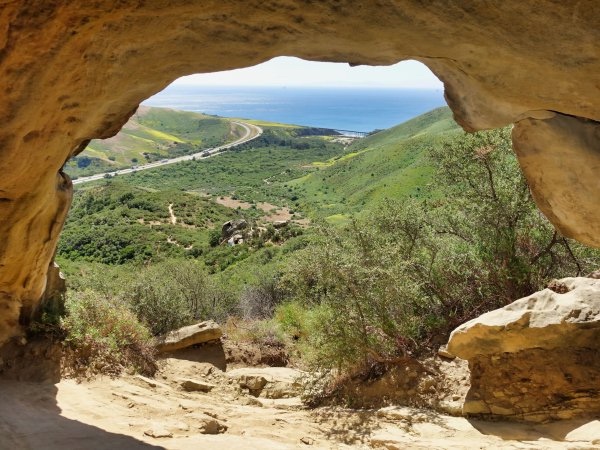
Saturday, April 27, 2024
2:00 – 4:00 pm (PDT)
Webcast and in-person only at
Concord Hall, Institute of World Culture, 1407 Chapala St., Santa Barbara, CA
Presenter: Ryan Quirk
A wise man once said, “the quality of your questions determines the quality of your life.” We are entering a time in human history in which the big questions are the ones we need to be asking. It is no secret that we live in a problem focused society – a society where playing the blame game, and self-victimization have become the norm, where every time we turn on the news we see fear, and violence displayed. We live in a society where it is normal to be unhealthy, unhappy, and in a state of distress. Young people are feeling ever-more lost. We are in need of answers, and in order to find those answers, we need to ask better questions.
In this talk we will be diving into those questions together in an attempt to shift our focus, to try and discover what real change in a positive direction really looks like. Questions such as: What is it that we really seek as human beings? What is the nature of fear and how do we overcome it? What is the nature of love and how do we embrace it? How do we create a better world, and what does a better world look like? And finally, what are the steps we can take to get there together?
Ryan Quirk, a 19 year-old author and student will share his inner journey and invite us to undertake our own.
You may attend this event in-person, or watch a simultaneous webcast.
To view the Webcast, which starts at 2:00 pm, log on to the Institute of World Culture YouTube Channel: https://www.youtube.com/user/iwcinsantabarbara/live
Image: Robert Bernstein, with permission
Click here for a printer-friendly flyer
Forum
The Scientific Foundations of Creative Musical Expression
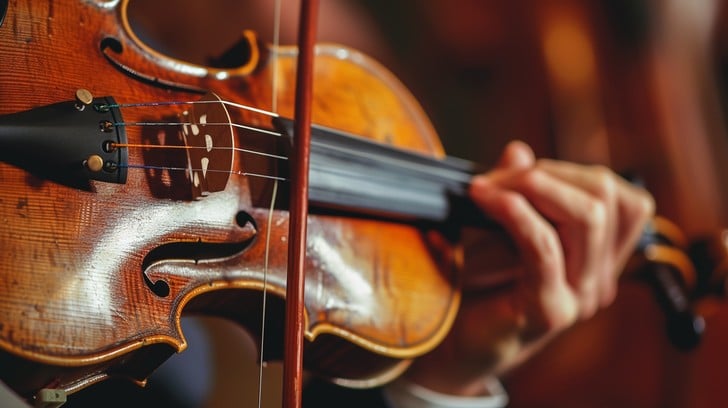
Saturday, May 4, 2024
2:00 – 4:00 pm (PDT)
Live Webcast* and In-Person Event
Concord Hall, Institute of World Culture, 1407 Chapala St., Santa Barbara, CA
Presenter: Barry Bittman M.D.
In ancient times, the physician and the musician were one and the same. Music as a healing elixir transcended science and art and extended into the ethereal realm. It also survived the test of time as society evolved around campfires where creative musical expression served as the catalyst for cultural advancement. From rudimentary percussion to dance and song, the opportunity to create music collectively clearly influenced the evolution of civilizations.
Join neurologist Barry Bittman, MD for a dynamic, fast-paced presentation that explores the scientific bio-psycho-social foundations of creative musical expression based on his several peer-reviewed scientific studies published over the last three decades. During this fascinating presentation, Bittman provides five remarkable evidence-based pillars based on a compelling sequence of scientific findings and practical insights garnered from a unique series of psychosocial, biological and genomic research studies.
Dr. Bittman is a neurologist, researcher, international speaker and author who serves as the Chief Population Health Officer for the Inland Empire Foundation for Medical Care. He is also the CEO of the Yamaha Music & Wellness Institute, a non-profit organization that is actively engaged in education and research.
*Webcast begins at 2 PM. Click the following link to view the program (a recording will also be available at this link for future viewing):
https://www.youtube.com/user/iwcinsantabarbara/live
Image: Stockcake, in the Public Domain
Click here for a printer-friendly flyer
Forum
Transformative Education: The Art of Living and Learning
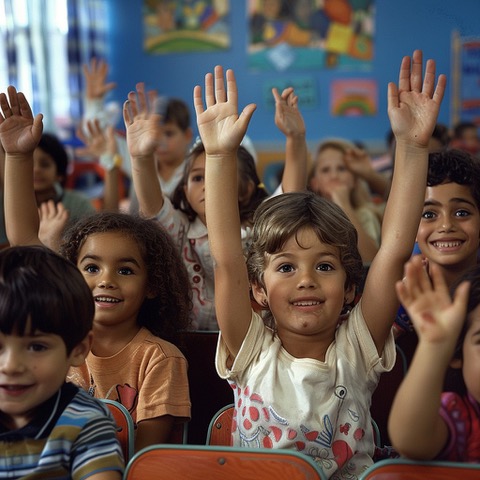
Tuesday, May 14, 2024 (note the unusal day and time)
7:30 – 9:30 pm (PDT)
Zoom Event Only*
Presenter: Sonal Murali, Ph.D.
What are the significant elements of children's transformative education? Children have their active subconscious mind, which, like a tree, has the power to gather its food from the surrounding atmosphere. Every day the child is searching to understand something, to grasp a piece of life. An educator's role is an interface for the child to explore the inner and the outer spaces and to see that the uniqueness of each child is celebrated, drawn out, and given wings to express freely in many ways.
Dr. Sonal Murali will discuss how their Academy in India reflects the philosophy that "school is not a preparation for life. School is life itself." She and her staff will join us live via Zoom from India, focusing on how an educator can facilitate awakening "the spark within."
*ZOOM EVENT: Non-members of the Institute may request a Zoom link by emailing: donna@worldculture.org. Members will receive a link automatically.
Image: Stockcake, in the Public Domain
Click here for a printer-friendly flyer
Forum
Cosmic Revelations: Exploring Astronomy's Frontiers

Saturday, June 1, 2024
2:00–4:00 pm (PDT)
Live Webcast* and In-Person Event
Concord Hall, 1407 Chapala Street, Santa Barbara, CA
Presenter: Daniel Godinez
Daniel Godinez, Ph.D. candidate in the field of Astronomy, will share his path to becoming a modern astronomer, the goals of modern astronomy, and the many exciting questions puzzling us today. He will include cutting-edge research, the mystery of the expanding universe, and the James Webb Space Telescope's latest discoveries. He will consider the implications of gravity waves, and the nature of dark matter and its role in cosmic evolution. Daniel will describe the quest for missing worlds in the solar system and how AI can help in this search. He will also discuss the AI models he has engineered and provide a live demo of what training AI models looks like.
*Webcast begins at 2 PM. Click the following link to view the program (a recording will also be available at this link for future viewing):
https://www.youtube.com/user/iwcinsantabarbara/live
Image: NASA Public Domain
Click here for a printer-friendly flyer
Forum
Self-Transformation: A Spiritual Journey of AA's 12 Steps

Saturday, June 22, 2024
7:00–9:00 pm (PDT) (NOTE the unusual time)
In Person Only Event
Concord Hall, 1407 Chapala Street, Santa Barbara, CA
Presenter: Brian B.
What do you think of when you hear the word “alcoholic”? Do you think of the shopping cart pusher, the freeway off-ramp sign holder, the sidewalk sleeper, the raging domestic abuser? And why can’t they just stop drinking? It turns out that alcoholics are everywhere, in every segment of society - on the judge's bench, helming large corporations, policing our streets and sleeping on park benches. They are husbands and wives, rich and poor, young and old, all with one thing in common - the inability to control their drinking.
For more than 80 years, Alcoholics Anonymous has been helping men and women recover from a seemingly hopeless state of mind and body by providing a simple blueprint for spiritual growth and human fellowship that transcends racial, national, and cultural boundaries.
Join Brian B., a sober member of Alcoholics Anonymous for over twenty years, as he explores the journey of self-transformation through the spiritual principles of the 12 Steps, including examination of AA culture and literature, related spiritual texts and his own personal experience. There will be an opportunity for discussion following the presentation.
Image: Stockcake, in the Public Domain
Click here for a printer-friendly flyer
Forum
William Penn's Vision of Cultural Conscience
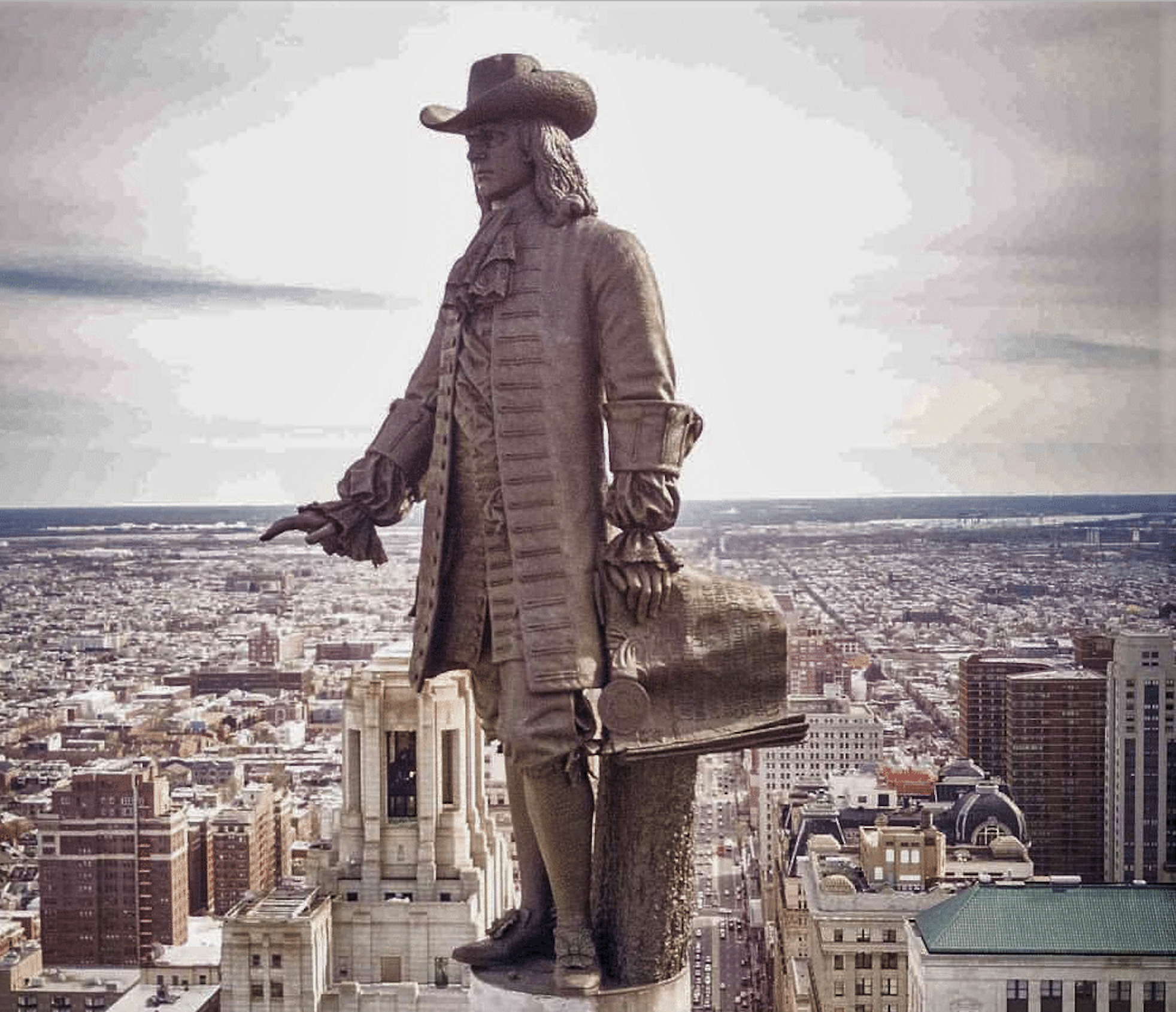
Saturday, July 6, 2024
2:00–4:00 pm (PDT)
Live webcast* and In Person Event
Concord Hall, 1407 Chapala Street, Santa Barbara, CA
Presenter: Carolyn Dorrance
This year's annual observance of the Institute of World Culture's founding in 1976 will focus on the insightful and ethical vision of William Penn proposed in 1682 for the new colony of Pennsylvania. Although Penn sought a safe place for Quakers to live and practice their new religion, his vision offered universal principles that all settlers could share using "open discussion". These principles included freedom of religion, real justice in the judicial system, practical education for many and equitable, economic opportunity. Within 20 years of its founding, the city of Philadelphia grew to be the largest city in the North American colonies and prospered with a global economy. A radical foundation of his vision was a commitment to conscience as a source of practical action. Also, the pursuit of science and philosophy flourished in Pennsylvania. After the talk and Q&A there will be cake to celebrate the founding of the Institute of World Culture Santa Barbara. Everyone is welcome to stick around to visit and enjoy the cake.
*Webcast begins at 2 PM. Click the following link to view the program (a video will also be available at this link for future viewing):
https://www.youtube.com/user/iwcinsantabarbara/live
Image: Wikicommons
Click here for a printer-friendly flyer
Film Series
IWC 2024 July Summer Film Series
 |
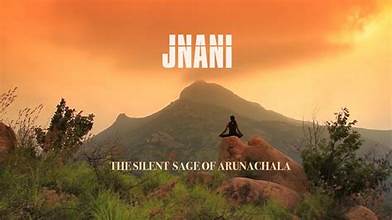 |
 |
7:00–9:00 pm (PDT)
In Person Event Only
Concord Hall, 1407 Chapala Street, Santa Barbara, CA
Moderator: Robert Moore
Join us for three Saturdays in July 2024 for a series of films that exault the human experience.
Note: Concord Hall now has air-conditioning.
Saturday, July 13
NOTE BY NOTE: THE MAKING OF STEINWAY L1037 (2007)
Filmmaker: Ben Niles
The theme of this documentary seems simple enough – follow the construction of a Steinway concert grand piano (L1037). As the film exposes the care and cultivated craftsmanship required for the construction, it also exalts the human enterprise. In the film, the director talks with numerous people involved in the process including craftspersons, staff and pianists Pierre-Laurent Aimard, Kenny Barron Bill Charlap, Harry Connick Jr., Héléne Grimaud, Lang Lang, and others. (56 minutes)
Saturday, July 20
JNANI, THE SILENT SAGE OF ARUNACHALA (2016)
The film presents the life and legacy of Sri Ramana Maharshi (1879–1950), widely recognized as an enlightened being. Many spiritual aspirants sought him out for inspiration and advice and his presence is alive in the hearts of his followers worldwide. The character of the sage at the center of Somerset Maugham’s The Razor’s Edge was based on the author’s experience with Ramana Maharshi. The film seeks to not only present some of the Sage’s core teachings, but to also the sense of peace and silence that accompanies them. (1 hour, 20 minutes)
Saturday, July 27
NO (2012)
Starring Gael Garcia Bernal
A very instructive historical drama about the 1988 Chilean Plebiscite to determine whether dictator Augusto Pinochet should remain in power versus democratic elections. The main character, played with hypnotic appeal by Gael Garcia Bernal, organizes an advertising campaign, not based on the brutal abuses of the Pinochet regime, but on the joy and freedom of creating a new era in Chilean life. It demonstrates the value of emphasizing the positive despite immense pain associated with the negative.
(1 hour, 58 minutes)
Click here for a printer-friendly flyer
Forum
The Classical Music of India: The Mathematics Behind the Sound

Saturday, September 7, 2024
4:30–6:00 pm (PDT)
Live webcast and In Person Event
Concord Hall, 1407 Chapala Street, Santa Barbara, CA
Presenter: V. R. Venkataraman, Artistic Director of The Music Circle
In this forum, V.R. Venkataraman, Artistic Director of The Music Circle, will demonstrate traditional South Indian music, how it develops from steady drones and wild improvisation, yet retains mathematical relationships as it elevates the energy of the room. Venkataraman has a passion for imparting his knowledge of culture, music, and mathematics in the age-old tradition of "Gurukulavasam". Through his vision for The Music Circle, in recent years he has introduced an event series called Parampara, Emerging Artists and Living Legends in Concert, aiming to represent the full diversity of the classical tradition with music and dance from both North and South India and by leading exponents of the fields of percussion, voice, and strings. In this presentation, V.R. will play the mridangam and will be accompanied by a student. V.R. has performed internationally with many notable western artists and has played with the greats of Indian music, including L. Subramaniam, the master of sitar, Ravi Shankar, and Harihar Rao. He met with George Harrison early in his career. He has been Professor of Music at San Diego State University, a professor of Applied Mathematics, and is currently Executive Chef at Appu’s Tumeric Café in Long Beach.
In-Person: FREE OF CHARGE, OPEN TO ALL, COME EARLY AS SPACE IS LIMITED
Live Webcast: begins at 4:30 PM (PDT). Click the following link to view the program: https://www.youtube.com/user/iwcinsantabarbara/live
A video will also be available at this link for future viewing.
Image: Courtesy of V.R. Venkataraman
Click here for a printer-friendly flyer
Forum
Compassionate, Community-Based Approaches to Reducing Homelessness

Saturday, September 21, 2024
2:00–4:00 pm (PDT)
Live webcast and In Person Event
Concord Hall, 1407 Chapala Street, Santa Barbara, CA
Presenters: Jeff Gaddess, DignityMoves, California and Cliff Tillotson, Hui Mahi’ai’Aina, Hawaii
Homelessness in the United States has ballooned over 12 percent in the last two years with currently over 650,000 unhoused individuals in America. One third of our nation’s homeless population (181,000) reside in California, while Hawaii has one of the highest per capita rates of homelessness in the nation. The non-profits, DignityMoves and Hui Mahi’ai ‘Aina, are grappling with this crisis by creating compassionate models where positiv self-transformation is possible for individuals transitioning out of homelessness. These communal living arrangements, villages or “kauhales” (as they are called in Hawaii) offer safe, secure and stable interim housing where those struggling with various traumas can receive the supportive social, financial, psychological and medical services they need to heal and eventually reenter the larger community as strong, healthy contributing members. Effectively addressing homelessness in the here and now is complex and multi-dimensional necessitating a large range of public and private partnerships. Cliff and Jeff are coming to the Institute to share what they have learned in this process and engage with us in a round-table forum for fearless inquiry into this important and challenging topic.
Webcast begins at 2 PM (PDT). Click the following link to view the program (a video will also be available at this link for future viewing):
https://www.youtube.com/user/iwcinsantabarbara/live
Image: DignityMoves website
Click here for a printer-friendly flyer
Forum
The (Un) Holy Alliance of Religion and Politics
A Gandhian Perspective
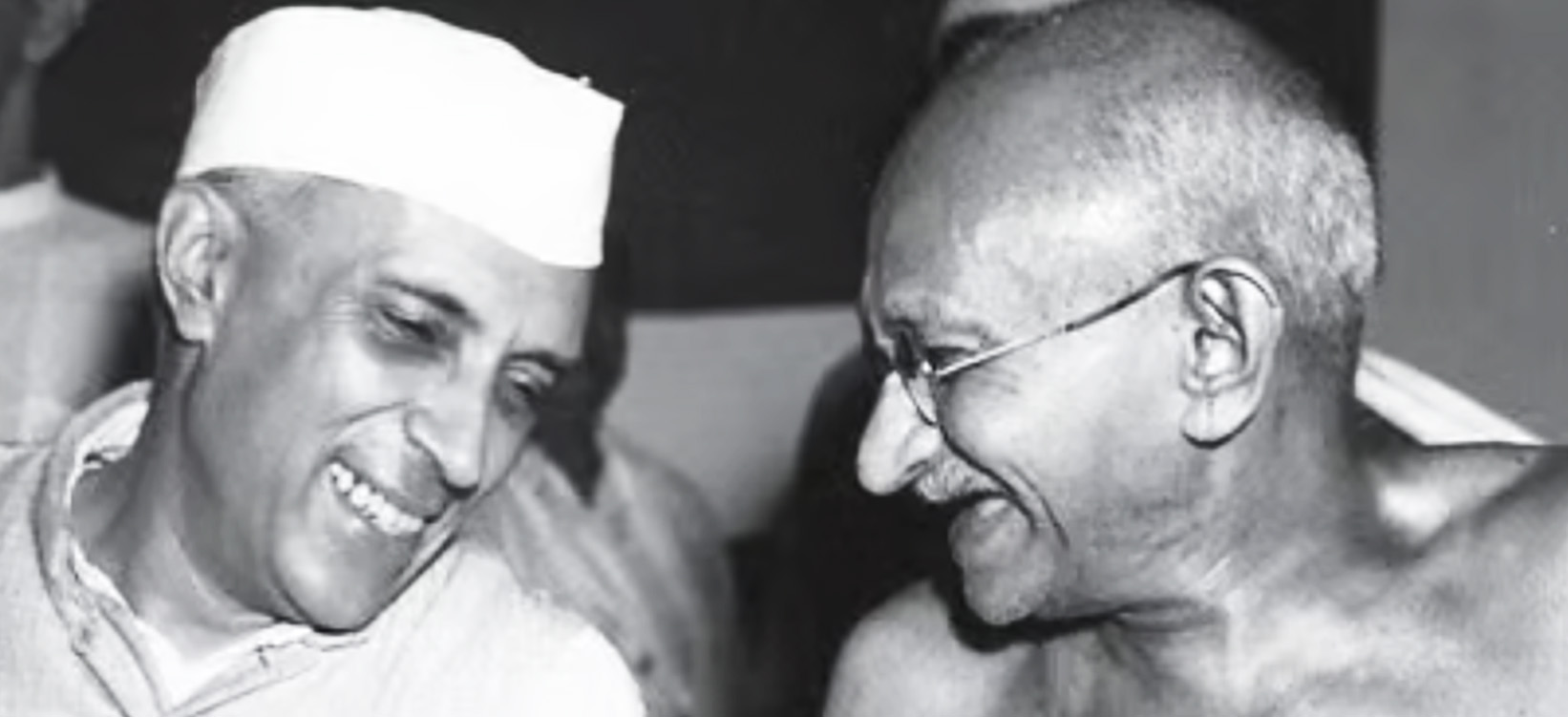
Saturday, October 12, 2024
2:00–4:00 pm (PDT)
Live webcast and In Person, Free event
Concord Hall, 1407 Chapala Street, Santa Barbara, CA
Presenters: Dr. Veena Howard with Commentary by Dr. James Tepfer
Mahatma Gandhi’s famous quip, “I am a Hindu, I am a Muslim, I am a Jew, I am a Christian…,” mystifies those who perceive each religious tradition as confined within its exclusive dogmatic walls. However, Gandhi, while inclusive in his approach, identified himself as a “Sanatani Hindu.” Some of the contemporary religious movements of Gandhi’s time, such as Theosophy and Brahmo Samaj, emphasized the shared spiritual principles of religions, and Gandhi uniquely embodied moral disciplines and synthesized them with political actions. He also witnessed how the force of dogmas embedded in organized religions, when used on behalf of sectarian ideologies, can transform into weapons of oppression. When understood properly and used benevolently, spiritual truths and practices can be harnessed to eliminate all forms of violence, to create a society that values non-exploitation, harmony, justice, respect, and goodwill towards all. This presentation focuses on the ways Gandhi spiritualized his political actions in order to build equitable and just social systems, and to confront those who believed religious life and political pursuits should be mutually exclusive endeavors
 |
Veena R. Howard, Ph.D., is a Professor of Asian Religion in the Department of Philosophy at California State University, Fresno. She also holds the Endowed Chair in Jain and Hindu Dharma and serves as the director of the M.K. Gandhi Center: Inner Peace and Sarvodaya. She has written several books, iincluding "Gandhi's Global Legacy: Moral Methods and Moral Challenges" as well as over three dozen peer-reviewed articles and a Ted-X talk. |
 |
James Tepfer, Ph.D., is a Gandhian scholar and life-long educator who received his doctorate in political philosophy in 1974 with a doctoral thesis on "Vinobe Bhave and the Bhoodan Gramdan Movement in India". |
Webcast begins at 2 PM (PDT). Click the following link to view the program (video will also be available at this link for future viewing):
https://www.youtube.com/user/iwcinsantabarbara/live
Image: Public Domain, Wikipedia
Click here for a printer-friendly flyer
Forum
Mozart and Masonic Themes
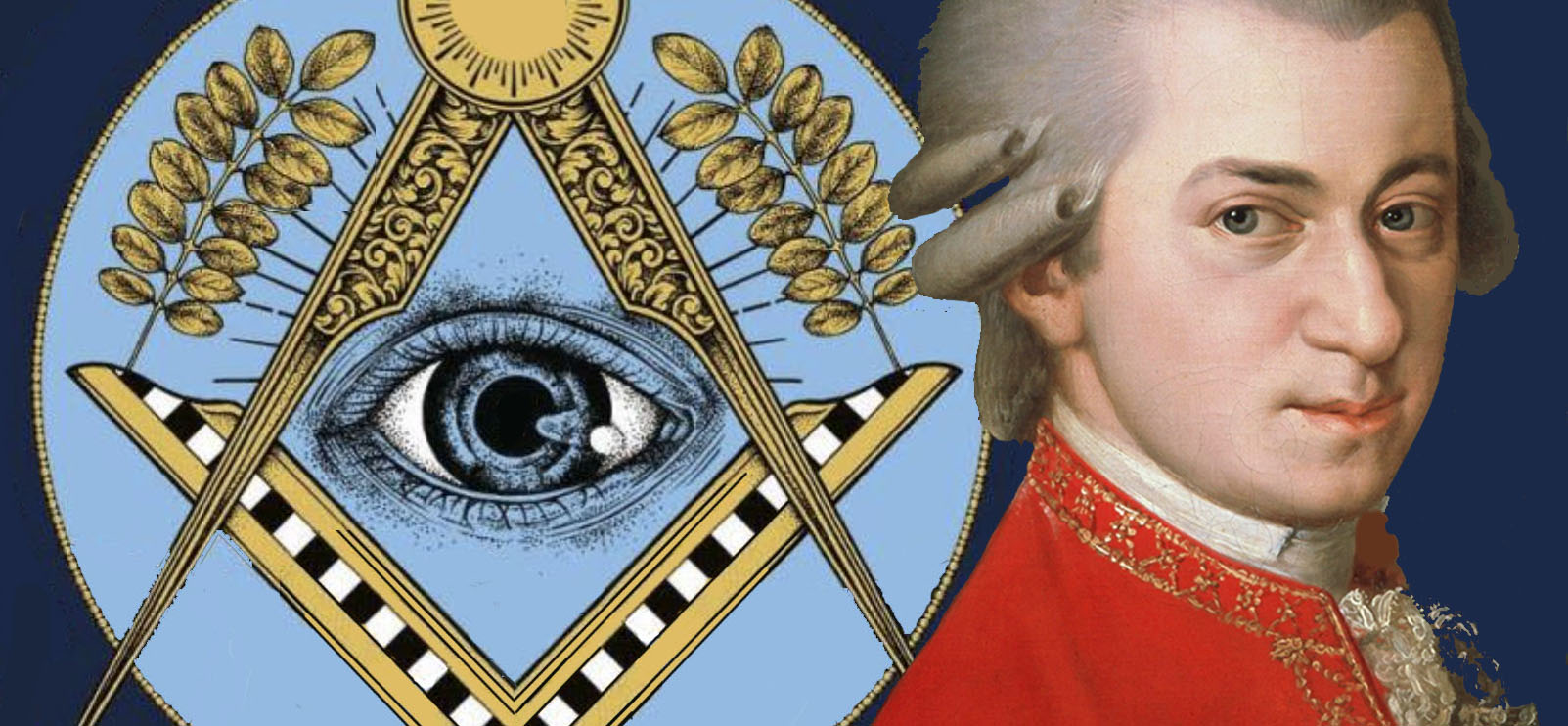
Saturday, November 2, 2024
9:00–11:00 am (PDT) NOTE the unusual time: our speaker will be live (via ZOOM from Ukraine)
Live webcast and In Person, Free event
Concord Hall, 1407 Chapala Street, Santa Barbara, CA
Presenter: Professor Yuliia Shabanova, Ukraine
The instrumental and vocal works of the last period of Mozart's life and his opera, The Magic Flute, are suffused with Masonic symbolism playing out with musical stylistics.
Professor Yuliia Shabanava will examine the significance of the Masonic movement and its role in the development of culture of the 18th century, and its influence on the life and work of Mozart's musical works including The Magic Flute.
 |
Yuliia Shabanova is a Doctor of Philosophical Sciences, Ph.D., Professor Honored Worker of Education of Ukraine. She has a higher musical pedagogical education, and from 2001-2023 was Head of the Department of Philosophy and Pedagogics housed at the DniPro University of Technology. She founded the Ukrainian Institute of World Culture (UIWC) in 2020, which is a research center at the DniPro Academy of Music, and she is currently the UIWC's director. She has worked and published in many fields including philosophy of culture, education and music. |
Webcast begins at 9:00 AM (PDT). Click the following link to view the program (video will also be available at this link for future viewing):
https://www.youtube.com/user/iwcinsantabarbara/streams
Image: Public Domain, Wikipedia
Click here for a printer-friendly flyer
Forum with LIVE MUSIC
A Tribute to Herbie Hancock
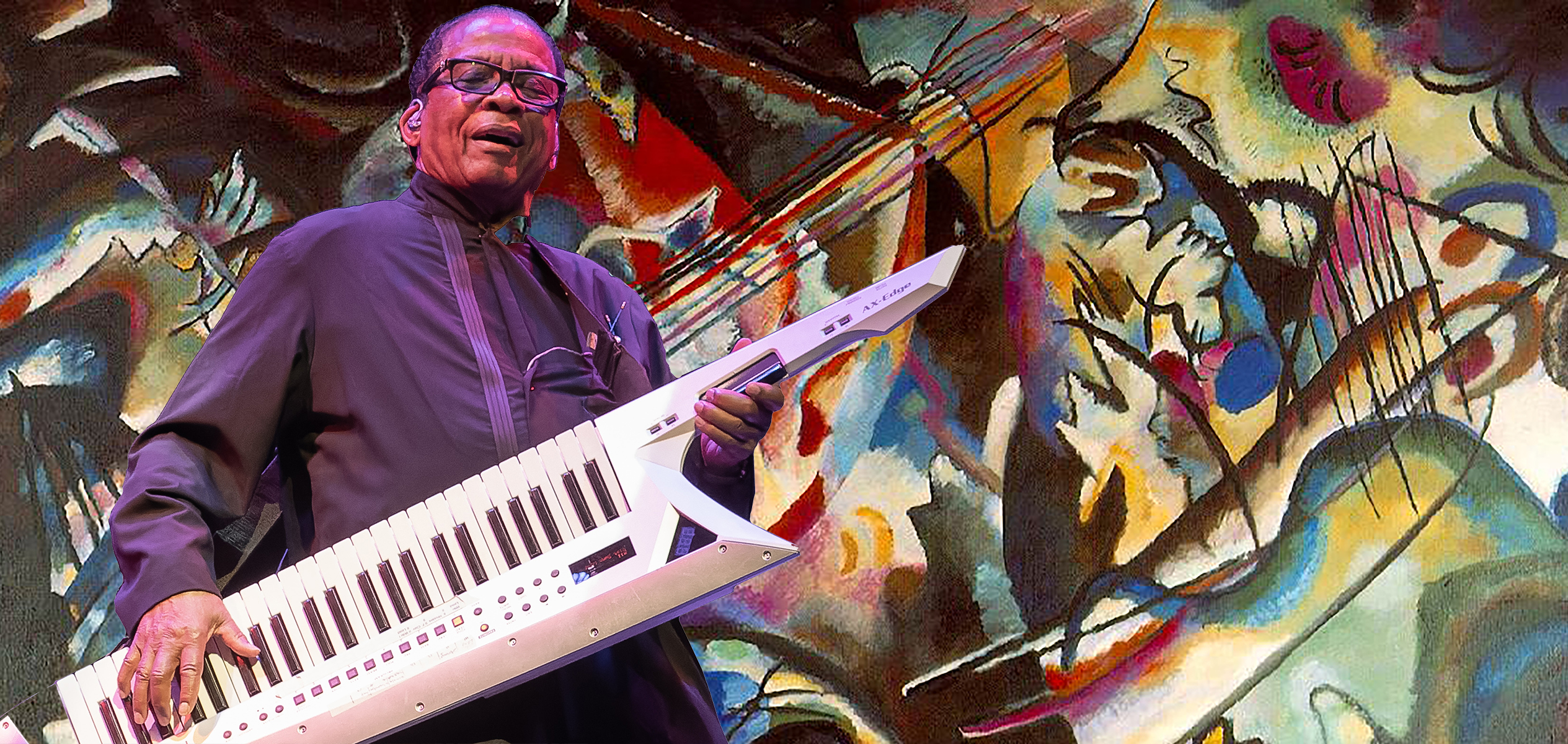
Saturday, November 9, 2024
2:00–4:00 pm (PST)
Live webcast and In Person, Free event
Concord Hall, 1407 Chapala Street, Santa Barbara, CA
Presenter: Dr. Jonathan Nathan and members of the UCSB Jazz Ensemble – with LIVE MUSIC
The UCSB Jazz Ensemble is proud to present an afternoon of music dedicated to the legendary Herbie Hancock. Under the direction of Dr. Jonathan Nathan, this talented group of musicians will explore the depth and diversity of Hancock’s groundbreaking contributions to jazz. The program will feature a dynamic range of his compositions, from the soulful groove of “Cantaloupe Island” to the revolutionary rhythms of “Chameleon,” reflecting Hancock's enduring influence on modern music.
Herbie Hancock, a pioneering artist in the world of jazz, has continuously pushed the boundaries of genre, blending elements of funk, rock, and electronic music into his compositions. The UCSB Jazz Ensemble will not only perform these and other iconic pieces but also provide insights into the cultural and musical significance of Hancock's work, creating an enriching experience for both jazz aficionados and newcomers alike. Join us for this exciting event, celebrating the artistry of one of the most innovative figures in jazz history. Don’t miss this unique opportunity to witness the "future of jazz" pay homage to one of its greatest innovators.
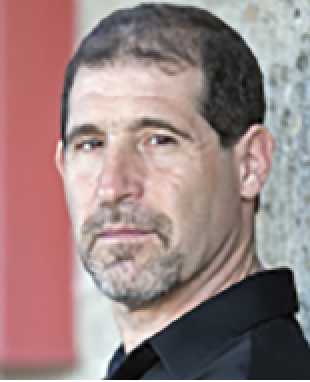 |
|
Webcast begins at 2:00 AM (PDT). Click the following link to view the program (video will also be available at this link for future viewing):
https://www.youtube.com/user/iwcinsantabarbara/streams
Image: Public Domain
Click here for a printer-friendly flyer
Forum
Hermes Trismegistus: Nurturing Wisdom, Awakening Conscience

Saturday, December 7, 2024
9:00–11:00 am (PST), Free event
Live webcast (details below)
In Person
Concord Hall, 1407 Chapala Street, Santa Barbara, CA
Presenter: Elton A. Hall
Hermes Trismegistus was the center of a profound spiritual movement in the first centuries of the common era, and his teachings deeply iinfluenced early Christians, an influence that continued, in various forms, through Western history and into the present. We will examine the mystery of who Hermes Trismegistus was and his teachings, which address conscience, intution, and self-determination in individual spiritual growth and in discerning the meaning of human existence.
 |
|
Webcast begins at the same time as the in-person program at the following link: https://www.youtube.com/user/iwcinsantabarbara/streams
A video of this program will also be available at the same link for future viewing.
Image: Public Domain
Click here for a printer-friendly flyer
Holiday Reception
HOLIDAY RECEPTION FOR IWC MEMBERS

Saturday, December 14, 2024
6:30–9:00 pm (PST)
For members only (each member may invited one guest)
Join fellow members of the Institute of World Culture at its festively decorated Concord House, a landmark Victorian building located at 1407 Chapala Street, for a celebration of the seasonal observance of birth and renewal. Come and enjoy the opportunity for fellowship, music, and holiday treats at this after dinner gathering. Light refreshments and beverages will be provided.
Image: Public Domain
LOOKING FORWARD TO 2025!

Saturday, January 18th, 2025
2:00–4:00 pm (PST). Free and open to all.
Live webcast (details below) and In Person at
Concord Hall, 1407 Chapala Street, Santa Barbara, CA
Presenters: Robert Moore and Kirk Gradin
Ancient wisdom traditions as well as poets and mystics from diverse cultures, portray the entire cosmos as a vast unified community, each living being indissolubly and interdependently interconnected with all other beings, each mirroring the whole in resplendent, though largely invisible, concord. On the visible human plane, however, we often seem enmeshed in polarization, internal and external disharmony, discord and strife with neighbors, communities, sects and institutions. What lies at the roots of such conflict and where are the hidden aquifers of healing solidarity and fraternity? Can philosophical and practical idealism, aims, paradigms and their resonant exemplars, past or present, help us move more wisely and creatively toward the white light of reconciliation, the restoration of harmonious kinship with each other and with Nature despite our diversities, current faults and past failures? This forum will attempt to engage us in such pressing questions as an introduction to the Institute of World Culture’s 2025 keynote theme: “Concord and Community.”
Biographical Information
Robert Moore is a life-long student of Plato and of wisdom traditions East and West. He has lived a life of service to the Santa Barbara community as an RN in acute rehabilitative medicine with a second career in non-profit educational programing and planning. As a member of IWC since its inception, he is known as a center of communal harmony, good humor and intuitive insight.
Kirk Gradin is a semi-retired local architect, illustrator and writer on topics of mystic philosophy, the spiritual in the arts and mythic symbolism. He has given recent presentations on ‘Pythagorean Harmonics’, ‘New Paradigms of Consciousness’, the Irish mystic George William Russell, and Henry David Thoreau.
Live webcast begins at the same time as the in-person program at the following link: https://www.youtube.com/user/iwcinsantabarbara/streams
A video of this program will also be available at the same link for future viewing.
Image: Public Domain
Click here for a printer-friendly flyer
